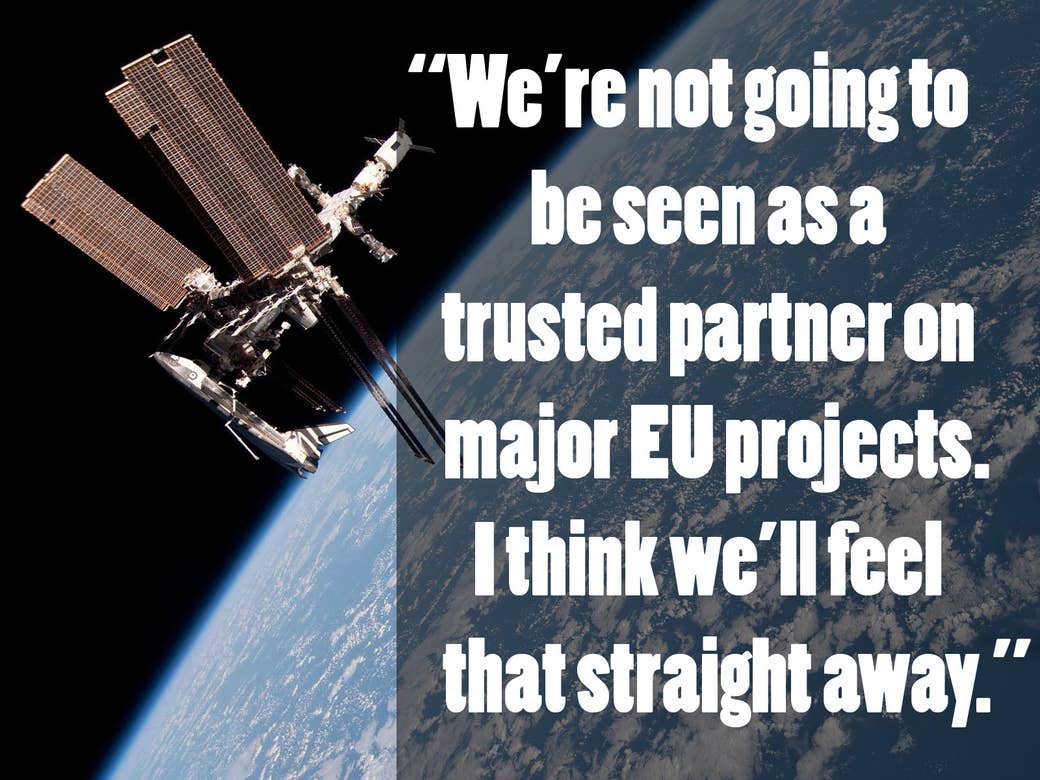
Stephen Curry, a structural biologist at Imperial College London:
"I think it’s very gloomy. From a funding point of view, it means likely ejection from European funding mechanisms, so there goes 10% of funding on Brit science. Leave promised to make it up but their promises are as worthless as their promise to spend £350m on the NHS.
"Also collaboration on major EU projects will be put in jeopardy. We’re not going to be seen as a trusted partner, so even though there’s still two years to come, I think we’ll feel that straight away.
"And there’s disquiet among my European colleagues at Imperial that Britain has become a colder, more forbidding place, less welcoming to them, and we’re going to lose a lot of talent because I don’t see how we can maintain freedom of movement.
"I hope that we can limit the damage as much as possible, but I don’t see anything but damage in the short and medium term."
Patrick Round, a medical doctor who performs clinical trials for a biotech startup.
"I think nothing much is going to happen immediately. In clinical trials, where I work, it’ll carry on until the process is complete, the process of leaving. I don’t think there’s a reason why people would not want to do trials here.
"There will be a period of uncertainty. Cooperation among scientists will continue, was always going to continue, because scientists here cooperate with scientists in the US, Japan, Canada, whatever. We collaborate a lot with Swiss scientists who aren’t in it. It depends a bit on how Europe reacts, whether they give grants to British scientists. But nothing will change until the process of leaving is complete.
People will still collaborate because that’s how science progresses. I’m not pessimistic about it, at all."
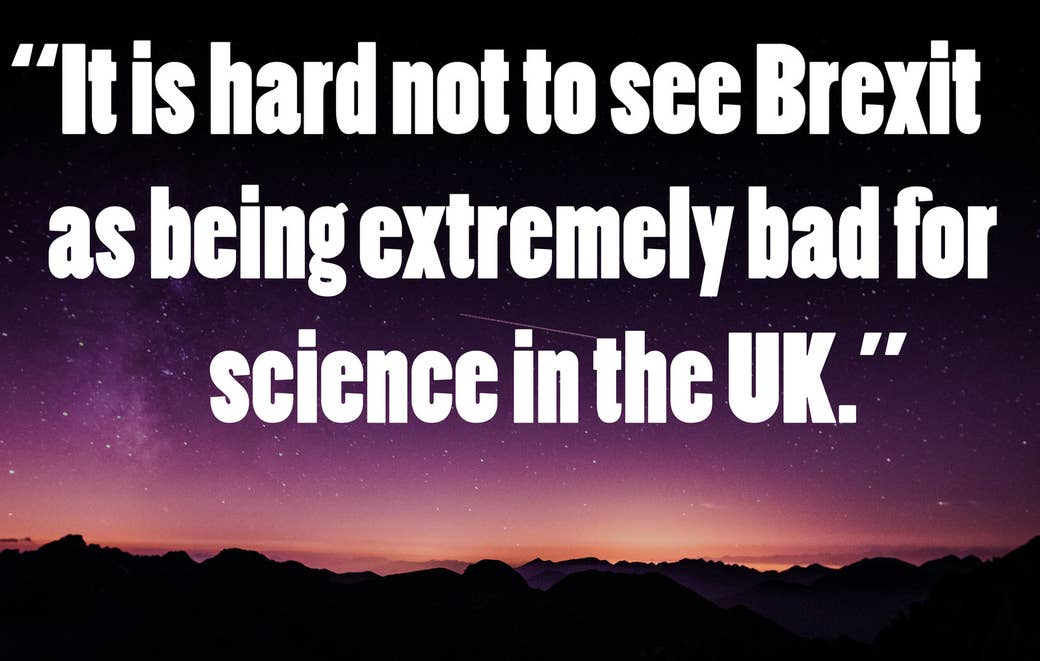
Athene Donald, an experimental physicist at the University of Cambridge:
"It is hard not to see Brexit as being extremely bad for science in the UK. This is why 150 Cambridge FRSs, including myself, signed a letter to the Telegraph calling for Remain; it is why 5,500 scientists from across the UK (again including me) signed a letter to the Times calling for Remain. If a future government restricts free mobility of EU workers, scientists in the UK will be barred from applying for grants from the EU. For Cambridge University EU grants currently make up around a quarter of all our research funding. The Leave campaign pledged to maintain EU funding till at least 2020. Now we will see if that is a promise they will keep. Scientists will be watching.
"Science, broadly interpreted, has been a fantastic strength in the UK. Not only has this meant excellence in and of itself but it has made a huge contribution to innovation and the economy. There is a real danger this strength will be put severely at risk with knock on effects for the economy and jobs. We will lose talented people to countries where EU funding can be accessed, as well as losing the funding itself."
Tara Shears, a professor of particle physics at the University of Liverpool:
"My first reaction is that this is so sad. I spend my life working with excellent scientists from Europe and beyond, and I see them as scientists and people rather than nations, without any barriers. I am so pleased to have the opportunity to do this, to benefit from it and to contribute to it.
"But what I've also realised is that there are problems and unhappiness in the UK, aside from Europe, that really need fixing. I hope this vote starts a constructive rebuilding of society, and that we can make it work as well as we can."
Liam Gaffney, a nuclear physicist at the University of the West of Scotland:
"I will start an EU-funded 'COFUND' fellowship at CERN in Geneva in the coming months. While this vote will not affect that offer, it is likely to close that pathway for the next generations of young physicists who dream big. It's a kick in the teeth for their prospects."
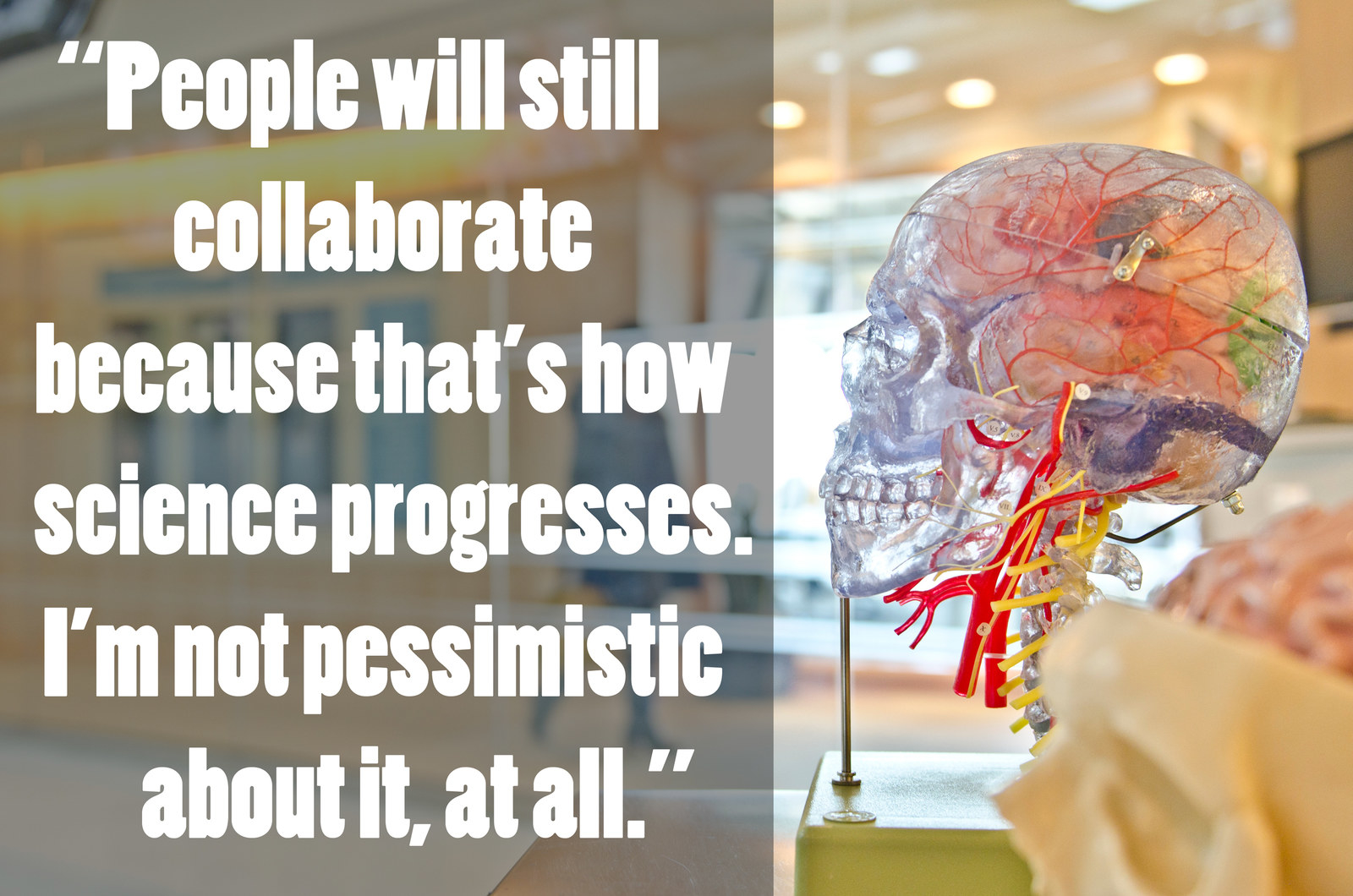
James Wilsdon, a professor of research policy at the University of Sheffield:
"Well, it’s a catastrophic result as far as the higher education research community is concerned. The worry will be about the place of our universities in Europe and the mobility of researchers. Al these things will take a long time to be resolved.
"On the research funding side, we’re a net beneficiary. One very immediate question how will our participation in research continue. And if there’s a shortfall in funding, will the UK government pick it up, as they promised? That money seems to have been promised in various directions.
"But I think the bigger questions are over mobility, what this will do to the attractiveness of the UK as a destination for the best and brightest from across Europe, who will now – quite rightly – think twice about coming to pursue their careers in British universities. Not to mention EU citizens who work now in British universities who will be feeling distressed.
"I’ve heard several colleagues say they might reconsider their place in the UK and potentially return to their place of birth. I think there will be a brain drain, and we need politicians and university leaders to reassure those very talented people that they’re still valued."
Markus Gershater, co-founder and chief scientific officer of Synthace Ltd, a biotech start-up in London:
"I've been through the despair already. It is what it is – even when none of us know how things are going to turn out. It's just made me more determined to have a positive impact in ways I have control over. i.e. to work harder at my science."
Stephen Wood, a psychologist at the University of Birmingham:
"I have lived and worked in Australia for many years and came back to Britain in 2010, and we've been umm-ing and ahh-ing about whether it was a good time to return to Australia. One of our thought processes was what happens in the referendum. So I'm pleased to have made the decision beforehand.
"Someone contacted me on Facebook this morning, only semi-jokingly asking me if I’d be interested in him coming to Australia too. I’ve had one of my clinical students talking about them coming to Australia. And my department here at Birmingham was looking to make significant hires in the next few months. if I was overseas I wouldn’t be thinking about coming to Britain right now.
"Another thing is that our university relies heavily on international students, and so do many others. I can see how, if I was a European student, coming to the UK now would be a bit of a risk. There’s going to be a lot of problems for British universities."
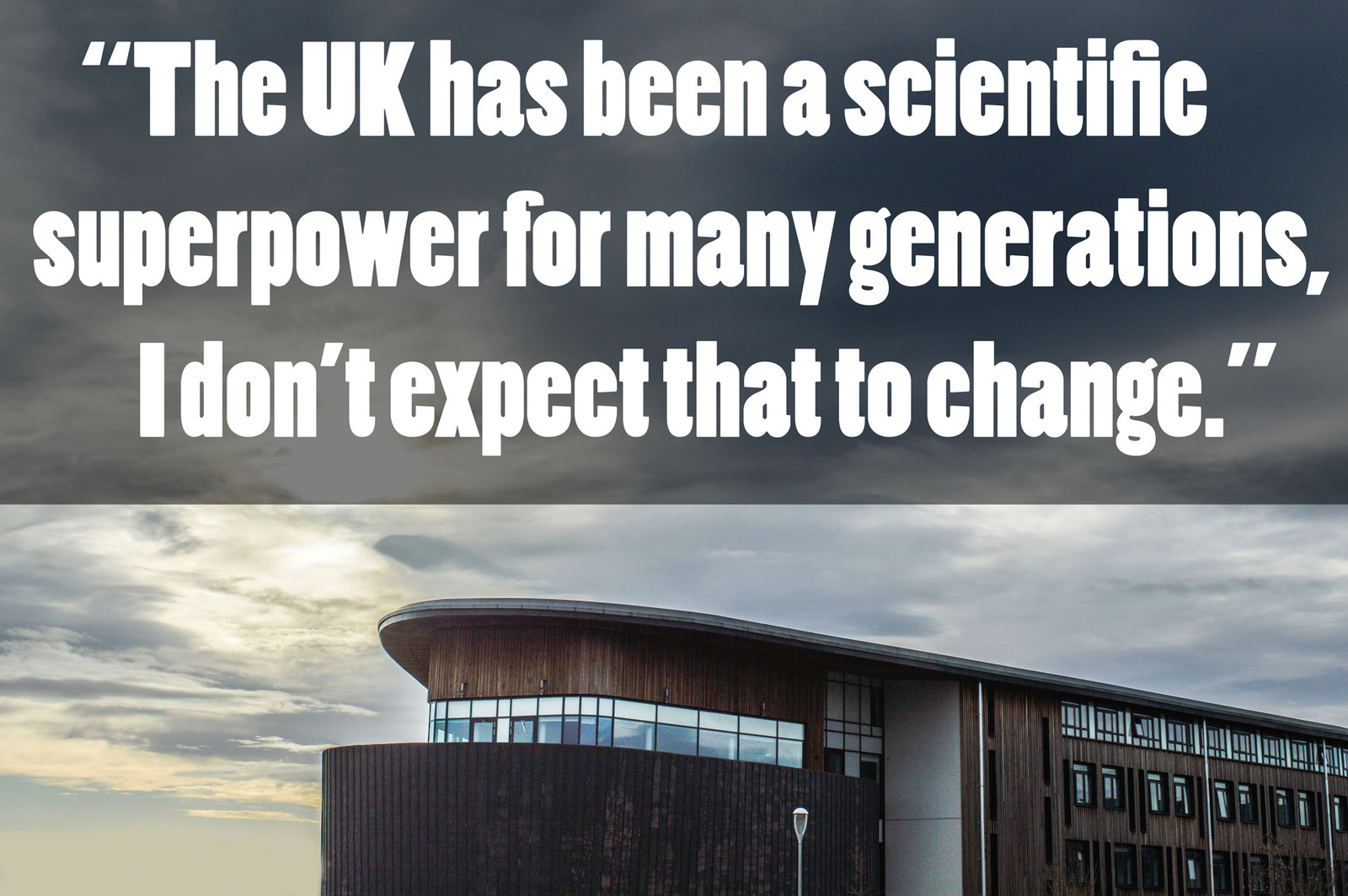
Jenny Rohn, a cell biologist at University College London:
"The UK has been a scientific superpower for many generations, I don’t expect that to change, but what has changed overnight is the context in which we’ll be operating. We got a great deal out of Europe on funding.
"We also need to be very concerned about the domestic science budget. It’s been protected but only by the skin of our teeth, and now the economy is going to tank, so I’d expect significant cuts.
"Also immigration. It cuts both ways – we get great scientists from outside the EU, and that’s not going to change, and in fact in some ways it could be good for non-EU scientists. But we may have difficulty attracting talent from the EU. It depends on who’s in charge and how anti-immigration they are.
"Science as a profession is incredibly insecure anyway. it’s not good money, there are a lot of short term contracts. Who’ll want a science job if it'll be even less stable?
"But I do think that the UK is an amazing place to do science. I really hope that we’re still open for business, but it’ll be hard in the short term. I think we’ll be all right. I think."
Andrew Steele, a computational biologist at the Crick Institute:
"This is just so incredibly depressing. 10% of UK research funding and so much of our international collaboration are at huge risk, with a shrinking economy to make up the shortfall.
"The disappointment is threefold. Firstly, science as a whole is at risk because of this.
"Secondly, I spend a lot of time campaigning for science funding and that is very likely to fall by the wayside as politics is dominated for by the ramifications of leaving the EU.
"And finally, I'm worried about my already precarious prospects as a young researcher, and those of my colleagues from the UK, Europe and around the world who work here."
Max Potter, a physics PhD student at the University of Manchester:
"As a PhD student, it doesn't seem to mean much for science. Collaboration won't be stopped by visas and EU funding won't dry up (see Israel).
"In my experience though, we scientists are globalists and left-leaning, so naturally the result has been quite devastating in my office. We're also more likely to have friends who are EU citizens whose lives may be impacted by this, since we have no idea how this is all going to play out."
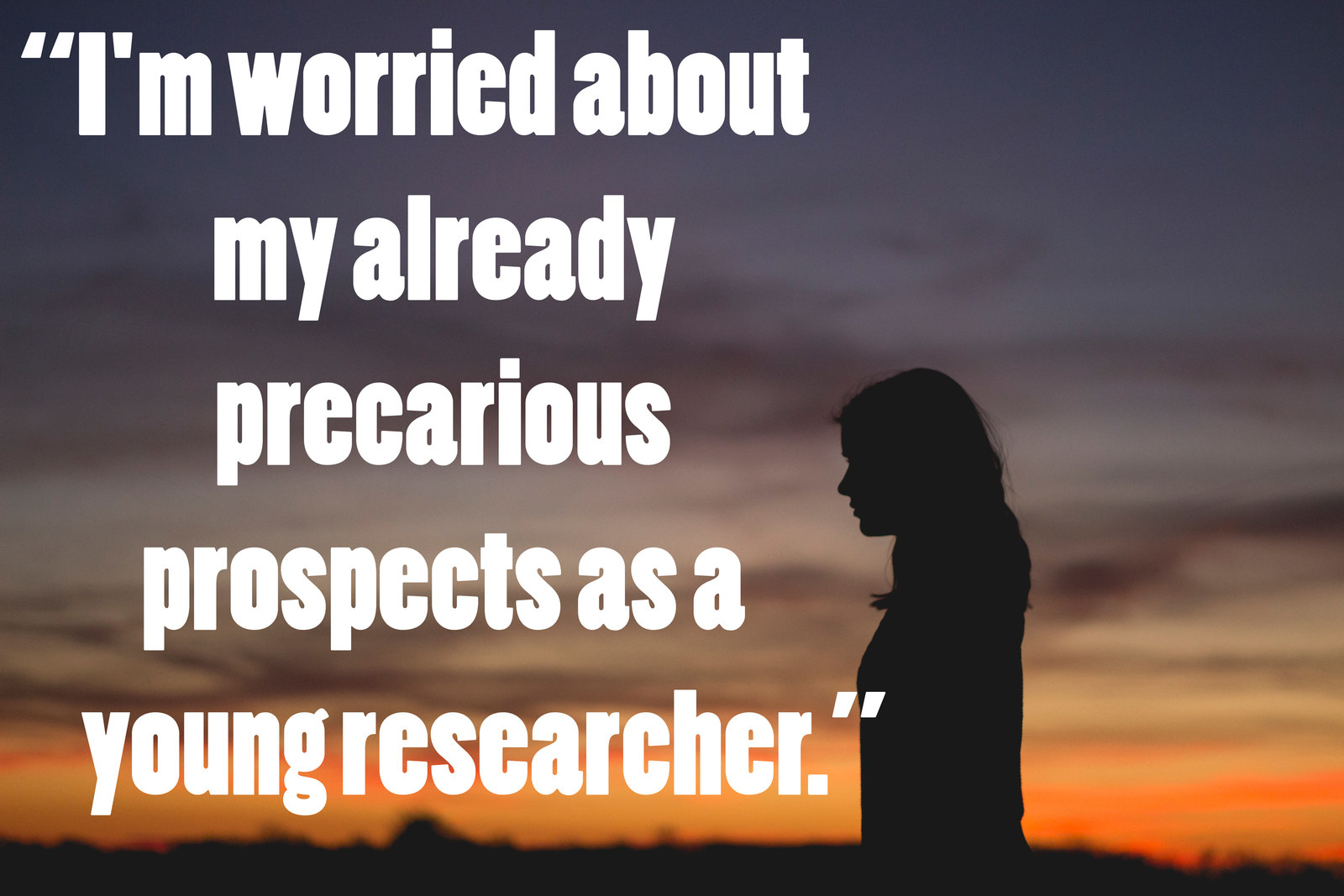
Phil Lewis, a cell biologist at the University of Manchester:
"Every member of the lab is absolutely devastated, not just due to the inevitable effect on our careers and job prospects once contracts have finished, but also on the overall effect on the UK.
"In addition to the certainty that a weaker economy will lead to less science funding, some lab members are affected in a much more direct manner. Some of our post-docs are from EU countries, so soon may have to apply for visas to work in the UK, others are directly funded by the EU.
"As post-docs, our contracts are short-term and our career path highly competitive and stressful. Every project that we engage in involves a long, arduous, and often unsuccessful application for a limited number of grants, each of which typically only last two to three years. The loss of EU funding, the possible decrease in UK funding, and the uncertainty about EU collaboration in the future will increase the anxiety in already over-extended field. Most of us think leaving British academia will be a good option when our contracts end.
"Not one of us believes that the UK will remain the leading light in science that it has been while in the EU."
Mark Lorch, a professor of science communication at the University of Hull:
"I'm sick to my stomach. My mother was an economic migrant who came to the UK from Denmark to work as a nurse in the 1960s. My grandparents on my father's side were German and Dutch Jews who emigrated to the UK in 1938 to escape persecution from the Nazis. Much of the rest of the family stayed in German and did not escape the Nazis. My father, as a son of an immigrant, received education in England and science degrees from our universities. He worked in research and senior positions in industry, making significant contributions to our economy.
"To see the UK turn from that welcoming country to a place where xenophobia is taking root fills me with horror.
"From a professional perspective, I work alongside Germans, Greeks, Russians, Swiss, French, Danes, Saudis and many more. They can only feel alienated from their adopted country. Most of them are free to move to other EU countries where they are sure they will continue to be able to access EU funding and collaborators. And my personal research has made use of German equipment and infrastructure via EU funding.
"I'm worried and scared for the future of the UK and the future of the science it produces."
Philip Moriarty, professor of physics at the University of Nottingham:
"My first reaction when I checked my phone at 06:15 this morning? Honestly?
"'Oh, bollocks'”.

